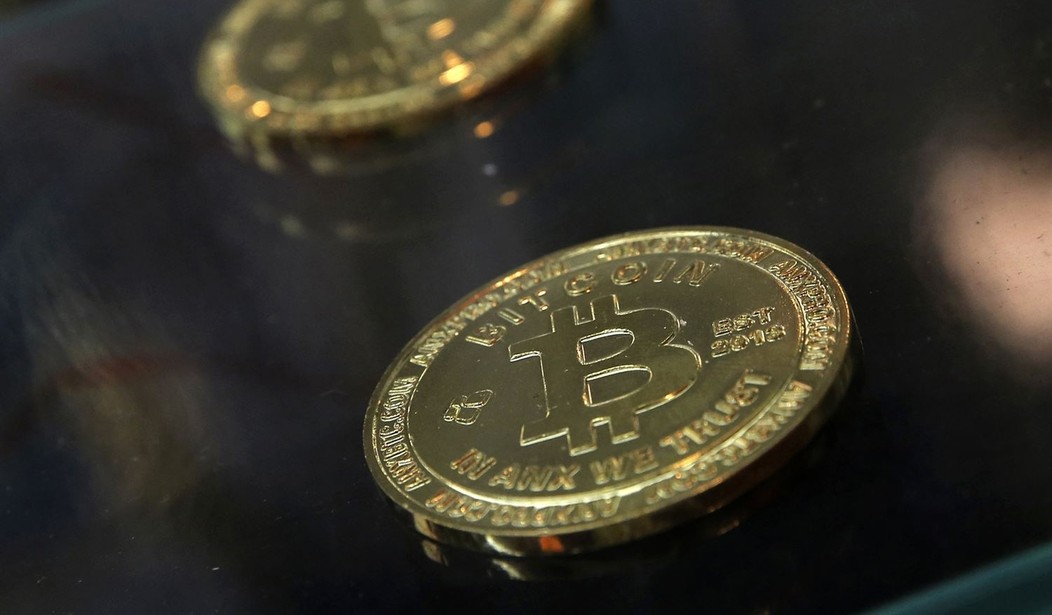The Biden administration has made it clear they oppose the potential of stablecoins. But proponents view these private digital tokens, which are backed by reserve assets such as the U.S. dollar and short-term debt (e.g., commercial paper), as serving a key function to ensuring that all Americans have access to financial services.
Pervasive opposition to digital tokens in the Biden administration could terminate future opportunities for providing capital to Americans that currently lack access to financing and bank deposits. Overregulation will stifle innovative financing products that could help provide capital for the unbanked and underbanked, or individuals who lack sufficient access to financial services. According to a Morning Consult poll, 37 percent of the underbanked population own cryptocurrency compared to only 10 percent of individuals who are fully banked.
Most importantly, the unbanked or underbanked individuals in the United States tend to be minorities. Black and Hispanic households are about five times as likely to be unbanked as white households. According to a survey conducted by the Federal Deposit Insurance Corporation (FDIC), in 2019 “unbanked rates were higher among lower-income households, less-educated households, Black households, Hispanic households, American Indian or Alaska Native” households.
Rural communities are also more likely to lack access to financial services. The FDIC reported that “64.6 percent of rural households used bank credit, compared with 69.2 percent of urban households and 77.3 percent of suburban households.”
Finally, low-income households are also disconnected from banking. The FDIC found that “only 37.0 percent of households with less than $15,000 in income used bank credit, compared with 89.9 percent of households with income of $75,000 or more.”
Recommended
Clearly, digital tokens have potential to offer essential services to minorities, low-income individuals, and rural communities.
In the past year, stablecoins’ market capitalization has grown over 500 percent to over $127 billion as of last month. The meteoric rise of stablecoins has garnered a lot of attention from federal officials who view stablecoins as operating in a similar fashion to money market funds. Several officials in the Biden administration have raised concerns that this growth increases the potential for runs on stablecoins which could lead to broader financial instability.
This month, the President’s Working Group on Financial Markets, the FDIC, and the Office of the Comptroller of the Currency (OCC) published a report on stablecoins that asked Congress to pass legislation that would only allow federally insured depository institutions to issue stablecoins. The report also says that the Securities and Exchange Commission (SEC) and the Commodity Futures Trading Commission (CFTC) have broad authority to regulate stablecoins.
Additionally, while waiting for legislative action, the report encourages the Financial Stability Oversight Council (FSOC) to designate stablecoins as “systemically important” to the financial ecosystem thus imposing stringent risk-management requirements on the tokens.
While these concerns are understandable, the key to ensuring that investors are protected from bad actors is by providing accurate disclosure information that details the structure of the stablecoins. The Cato Institute has outlined a detailed framework for stablecoins that will protect investors and promote innovation. The framework would amend current statute so that issuers of digital tokens are regulated as “limited purpose investment companies” and have certain collateral requirements they must meet. The proposal would also require the issuers to disclose “a detailed explanation of its reserve holdings” including the value of the assets and the percentage of each asset. For example, how much of the stablecoin is backed by the U.S. dollar versus short-term debt.
Following the publication of the Biden administration’s report on stablecoins, Acting Comptroller of the Currency, Michael Hsu, recently said that stablecoin development is “not what you want” and that the outcomes of innovation are “not going to be good.”
Given that the OCC regulates national banks, and the Comptroller of the Currency is a voting member on the FSOC, Acting Comptroller Hsu’s remarks are especially worrisome for stablecoins and private digital tokens in general. Even more concerning is the current nominee to run the OCC, Saule Omarova, a critic of digital tokens. Bloomberg reported in September that “if Omarova is confirmed by the Senate, the OCC would likely go even further in pursuing stricter oversight of digital tokens and tougher rules.”
Skepticism toward stablecoins could stymie important innovations in financial services. For example, according to a paper published by the Bank for International Settlements, Meta’s stablecoin could be used across “Facebook Pay, WhatsApp Pay and Instagram Pay, with potentially rapid access to hundreds of millions of retail customers in a very short period.” Additionally, stablecoins could soon play a key role in novel crypto products offering dividend-like yields.
Congress should think hard about how to promote the usage of stablecoins without compromising investor protections. Whatever Congress decides on should expand financial services to those who need it and encourage innovation within the industry.
Bryan Bashur is a Federal Affairs Manager at Americans for Tax Reform and executive director of the Shareholder Advocacy Forum.

























Join the conversation as a VIP Member